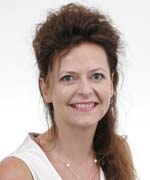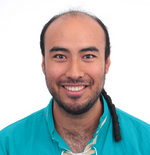| Name | Position | Phone | |
|---|---|---|---|
| Bovyn, Matthew | Postdoc | bovyn@mpi-cbg.de | +49 351 210-1934 |
| Flasse, Lydie | Guest Scientist | flasse@mpi-cbg.de | |
| Franz, Antje | Assistant to Anne Grapin-Botton | afranz@mpi-cbg.de | +49 351 210-2730 |
| Grapin-Botton, Anne | Managing Director | botton@mpi-cbg.de | +49 351 210-2500 |
| Hewitt, Louis Alexander Noble | Predoc | hewitt@mpi-cbg.de | |
| Iserman, Christiane | Postdoc | ciserman@mpi-cbg.de | |
| Kim, Yung Hae | Staff Scientist | kim@mpi-cbg.de | +49 351 210-2671 |
| Kuodyté, Karolina | Postdoc | kuodyte@mpi-cbg.de | +49 351 210-2715 |
| Lee, Byung Ho | Postdoc | blee@mpi-cbg.de | +49 351 210-2983 |
| Leuschner, Marit | Technician | leuschner@mpi-cbg.de | +49 351 210-2736 |
| Liu, Jifeng | Postdoc | jliu@mpi-cbg.de | +49 351 210-2766 |
| Mishra, Monalisa | Predoc | monamishra@mpi-cbg.de | +49 351 210-2716 |
| Ortega Granillo, Augusto | Postdoc | ortegagr@mpi-cbg.de | |
| Petzold, Heike | Technician | hpetzold@mpi-cbg.de | +49 351 210-2743 |
| Richter, Katharina | Predoc | hilbig@mpi-cbg.de | |
| Sumbal, Jakub | Postdoc | sumbal@mpi-cbg.de | |
| Warin, Julie Danielle Reine | Postdoc | warin@mpi-cbg.de |

Lydie Flasse
Guest Scientist
I am a biochemist fascinated by morphogenesis. My research has been linked to various human disorders, including diabetes, kidney diseases, and ciliopathies. Within Anne’s team, I am investigating the role of primary cilia in the formation of the pancreatic ductal network. Together with other lab members, we are characterizing the organization and dynamics of primary cilia during pancreas development. We are testing their function as flow sensors and exploring their role in remodeling the embryonic ductal network into an arborescent structure that efficiently channels pancreatic secretions into the duodenum. Our work aims to provide mechanistic insights into the dynamic and function of primary cilia in tubular network formation, while laying the groundwork to uncover the implications of impaired pancreatic cilia signaling in ciliopathies.

Louis Hewitt
Predoc
Organoids serve as an excellent model for investigating the underlying principles of development. However, our current understanding of how cells self-organise into these complex structures remains limited. My aim is to improve our understanding of pancreatic organoid formation by investigating the role of cell-to-cell signalling in organoid formation, with a specific emphasis on Notch signalling. To accomplish this, I employ a diverse range of techniques, including in-vitro culturing of pancreatic progenitors, microfluidics, and live imaging. These methodologies enable me to track the formation, growth, and differentiation dynamics of pancreatic organoids, from dissociated cells to fully developed spheres.

Katharina Hilbig
Predoc
Pancreatic development can be followed using 3D cell culture of pancreatic organoids and by interfering with the development of pancreatic progenitor cells. To date, small molecules, i.e. inhibitors of individual proteins that disrupt signaling pathways, have been used for this purpose to study their effect on pancreatic development. However, alternative methods need to be explored because inhibition alone has drawbacks such as the occupancy effect. I am a chemist co-supervised by André Nadler and my plan is to use small molecules called PROTACs to target specific proteins for degradation and use the cell's degradation machinery to study the response of the corresponding signaling pathways and evaluate the resulting consequences for pancreatic organoid development. This method offers the possibility to intervene in cellular signaling pathways at the post-translational level with spatiotemporal control.

Yung Hae Kim
Staff Scientist
I'm working on differentiation dynamics of pancreatic progenitors to endocrine lineage during pancreas development by observing pancreatic progenitors' behaviors at single-cell resolution from mouse embryonic pancreas and human pluripotent stem cell (hPSC)-derived pancreatic cells. I use 2-D and 3-D live imaging, lineage tracing, single-cell transcription analysis, hPSC differentiation, and hPSC-derived pancreatic organoids. I'm also collaborating with mathematicians/physicists to model our data and test the model experimentally. The ultimate goal is to be able to control progenitor expansion and/or endocrine differentiation to boost production of beta-cells in vitro as a mean of beta-cell replacement therapy for type 1 diabetes.

Byung Ho Lee
Postdoc
Byung Ho is studying the influence of biophysical stimuli on the growing pancreas and pancreatic organoids. He is particularly interested in how mechanical deformations influence branching and differentiation of the pancreas and pancreatic organoids.

Marit Leuschner
Technician
I work with human pluripotent stem cells, differentiate them into pancreatic cells and make pancreatic organoids. I characterize cells by flow cytometry, qPCR and immunofluorescent staining. I also take care of lab organization.

Jifeng Liu
Postdoc
The pancreas is a crucial heterocrine gland organ of the human body, which secretes enzymes to digest food and hormones to control blood sugar levels. Dysfunctions of the pancreas can lead to many human diseases, such as the metabolic disease of diabetes. My research interest is to construct advanced 3D cell culture models by combining cells, material scaffolds, growth factors, and engineering methods to recapitulate individual or multiple structural and functional traits of the real human pancreas and use them to study how genetic mutations cause pancreatic diseases.

Augusto Ortega Granillo (he/him)
Postdoc
I have a long scientific interest in tissue dynamics during homeostasis and regeneration. For my postdoc, I decided to explore how physical mechanisms shape tissues, which led me to Dresden. After my PhD, I joined the lab as a shared postdoc with the Campàs group at PoL TU Dresden. In my project I want to understand hydraulic principles that are deployed by tissues to develop lumens. I am using quantitative tools to measure osmotic pressure, transcriptomic and mass-spectrometry profiling, as well as genetic manipulations. I aim to identify molecular components that change osmotic pressure, and their function during lumen formation in the embryonic pancreas. In the future, I aspire to become a group leader doing research in tissue homeostasis and regeneration.

Heike Petzold
Technician
In Spring 2018 I was responsible primarily for the relocation of Anne’s research laboratory from Copenhagen and establishment of a functioning lab in Dresden.
I am a very enthusiastic Senior Research Technician who has worked in a number of remarkable research laboratories. I have gained extensive experience and useful working skills throughout my career in a variety of research projects.
Today I use this knowledge as I support ongoing experiments and establish new methodologies within our group, advise incoming lab members and keep the lab business running smoothly.
My research project focuses on the role of apicobasal polarity in 3D pancreatic organoid cultures. Specifically, we are currently investigating what controls cell polarity in 3D organoids compared to sphere formation.
Our state-of-the-art microscopes will help to answer these and other open questions in the future.

Coline Schewin
Predoc
It was recently shown in our lab that during development, the early secretion of fluid in the pancreas likely shapes the structure of the ductal network that deliver enzymes digesting food from their production site, in acini, to the intestine (Dahl-Jensen et al., 2018). In my project I study the influence of exocrine secretion flow on the morphogenesis of this ductal network. I am particularly interested in how the flow is generated, how it is sensed and its influence on the remodeling of the ducts.

Karolina Kuodyté
Postdoc
I am a cell biologist specialising in intracellular and intercellular communication. My postdoctoral research focuses on the exocrine pancreas, particularly enzyme-secreting acinar cells—their differentiation, characterisation, and function. Emerging evidence suggests that acinar cells are key contributors to pancreatic adenocarcinoma initiation and progression. To model this process, I use human induced pluripotent stem cells (iPSCs) and introduce key driver mutations known to trigger pancreatic cancer, creating an early tumorigenesis model. By combining 3D organoid systems derived from human cells, I aim to develop physiologically relevant models to investigate the cellular and molecular mechanisms driving pancreatic cancer development.